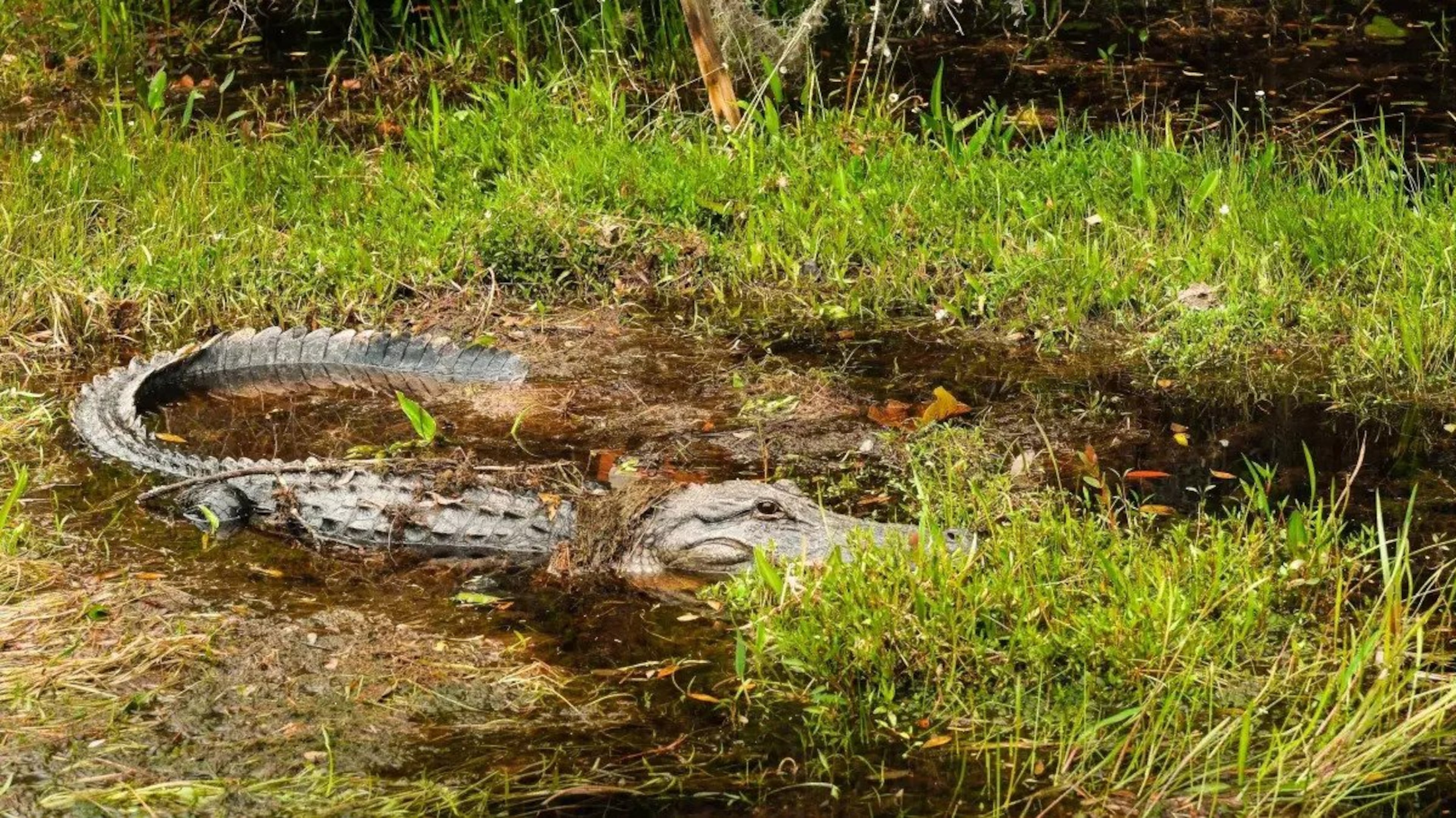Ossoff urges Georgia to reject Okefenokee Swamp mining proposal

In pointed remarks delivered Friday night, U.S. Sen. Jon Ossoff again urged state officials to block a controversial plan to mine for titanium at the edge of the ecologically sensitive Okefenokee National Wildlife Refuge.
“I’m calling today on the state of Georgia to reject strip mining near the Okefenokee Wildlife Refuge,” he said.
Ossoff’s speech was delivered during the Georgia Rivers Gala, a fundraising event in Atlanta hosted by the Georgia River Network, a nonprofit that protects waterways statewide and is opposed to the mine. Ossoff also name-checked the Georgia Environmental Protection Division (EPD), which is in charge of reviewing the company’s permit applications, and said there is “clear and convincing evidence” that the mining plan does not meet the state’s standards.
The Alabama company behind the mining project, Twin Pines Minerals, is seeking to extract titanium on a 580-acre tract of Trail Ridge, an ancient inland sand dune complex that forms the eastern boundary of the swamp.
The Okefenokee is a critical habitat for hundreds of species — including some that are endangered — and draws more than 700,000 tourists a year. It also holds millions of tons of peat deposits, preventing huge amounts of heat-trapping carbon dioxide from escaping into the atmosphere.

Twin Pines has said repeatedly its analyses show that the 50-foot deep pit it plans to dig and the thousands of gallons of groundwater it will pump from the underlying aquifer will not harm the fragile swamp ecosystem.
But environmentalists and a prominent hydrologist from the University of Georgia, Rhett Jackson, disagree, arguing the mine will lower water levels in the swamp and increase the risk for intense wildfires.
Earlier this year, scientists with the federal National Park Service also questioned the company’s claims, writing in a sharply worded critique that the hydrology modeling used by the company “obfuscates the true impacts from mining on the refuge.”
Notably, Ossoff did not mention Gov. Brian Kemp directly in his remarks. The two could face off in 2026 for the U.S. Senate seat Ossoff currently holds. Kemp’s office did not comment on Ossoff’s statement Friday.
Ossoff’s speech is hardly the first time he has voiced opposition to the mine.
Roughly a year ago, he visited the swamp with U.S. Interior Secretary Deb Haaland. Soon after her visit, Haaland wrote to Kemp asking him to reject the company’s permits, citing the “unacceptable risk” she said the mine poses to the Okefenokee.
In February, Ossoff also wrote a letter to EPD, calling on the agency to reject Twin Pines’ mining application.
The senator’s letter was one of more than 77,000 public comments EPD received on the proposal during the two month period after it was released in January.
EPD spokeswoman Sara Lips said the agency has asked Twin Pines to “clarify” some items in their mining plan. Once those are received, Lips said EPD would determine whether additional information is needed and respond publicly to the volumes of comments and technical feedback it has received.



